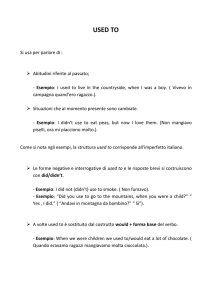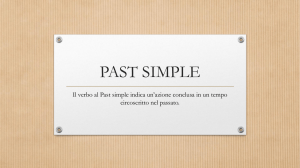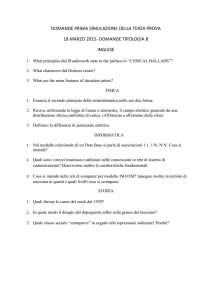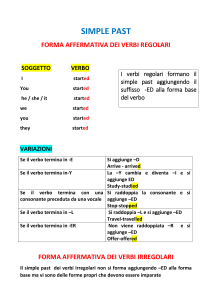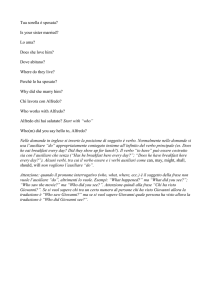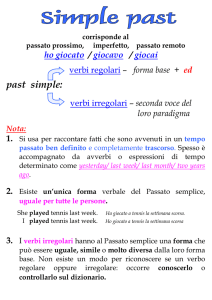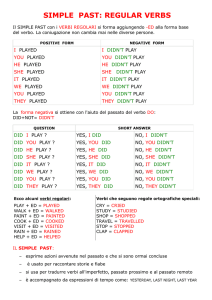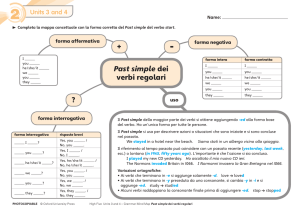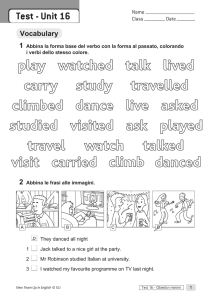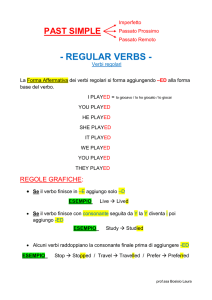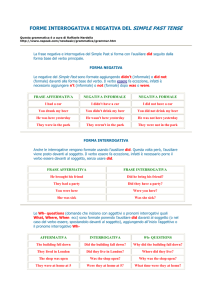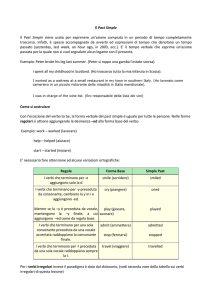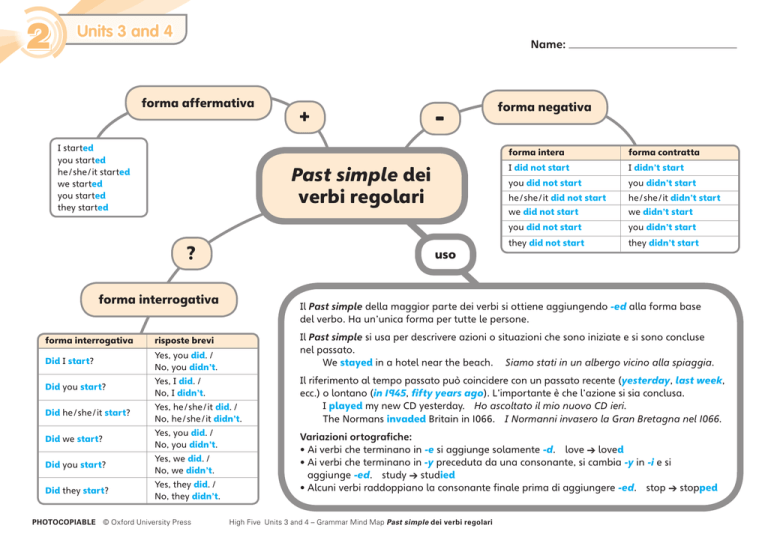
2
Units 3 and 4
Name:
forma affermativa
I started
you started
he / she / it started
we started
you started
they started
+
-
Past simple dei
verbi regolari
?
uso
forma interrogativa
forma intera
forma contratta
I did not start
I didn’t start
you did not start
you didn’t start
he / she / it did not start
he / she / it didn’t start
we did not start
we didn’t start
you did not start
you didn’t start
they did not start
they didn’t start
Il Past simple della maggior parte dei verbi si ottiene aggiungendo -ed alla forma base
del verbo. Ha un’unica forma per tutte le persone.
Il Past simple si usa per descrivere azioni o situazioni che sono iniziate e si sono concluse
nel passato.
We stayed in a hotel near the beach. Siamo stati in un albergo vicino alla spiaggia.
forma interrogativa
risposte brevi
Did I start?
Yes, you did. /
No, you didn’t.
Did you start?
Yes, I did. /
No, I didn’t.
Did he / she / it start?
Yes, he / she / it did. /
No, he / she / it didn’t.
Did we start?
Yes, you did. /
No, you didn’t.
Did you start?
Yes, we did. /
No, we didn’t.
Did they start?
Yes, they did. /
No, they didn’t.
PHOTOCOPIABLE © Oxford University Press forma negativa
Il riferimento al tempo passato può coincidere con un passato recente (yesterday, last week,
ecc.) o lontano (in 1945, fifty years ago). L’importante è che l’azione si sia conclusa.
I played my new CD yesterday. Ho ascoltato il mio nuovo CD ieri.
The Normans invaded Britain in 1066. I Normanni invasero la Gran Bretagna nel 1066.
Variazioni ortografiche:
• Ai verbi che terminano in -e si aggiunge solamente -d. love ➔ loved
• Ai verbi che terminano in -y preceduta da una consonante, si cambia -y in -i e si
aggiunge -ed. study ➔ studied
• Alcuni verbi raddoppiano la consonante finale prima di aggiungere -ed. stop ➔ stopped
High Five Units 3 and 4 – Grammar Mind Map Past simple dei verbi regolari

